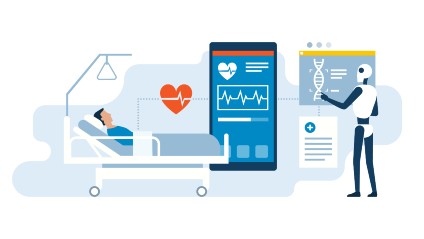Fiduciary duties and the healing relationship

The remainder of this section focuses on an account of the healing relationship and medicine’s fiduciary duties developed in the context of virtue ethics. A virtue-based approach emphasises the importance of treating the patient as a whole and promoting the patient’s well-being through good practice. Standards are defined against goods such as compassion that “safeguards that the patient is not only seen as a number,” contextual understanding of the patient’s values, history and concerns, an “interest in the inner processes of the patient…an adequate skill in responding non-verbally and by skilful and sensitive dialogue,” alongside technical skill in ‘fixing’ the patient’s disorder or managing a persistent condition. With that said, these core aims are shared by many other approaches outside of virtue ethics. For example, approaches to care ethics and feminist ethics focus on related goods such as the caring role of the health professional, relationships and care responsibilities (in contrast to a focus on justice and rights), tacit knowledge and context-sensitive care that responds to the interests and needs of patients as unique, socially embedded individuals, and power imbalances and coercion owing to the vulnerable position of the patient.
Several characteristics of the healing relationship create moral obligations on practitioners to protect the interests of patients. Specifically, the relationship can be characterised by the following traits:
Vulnerability and Inequality
Patients experience a loss of control to define and pursue personal goals, and may experience emotional stress, fear, worry, and anxiousness. The immediate goal of life becomes the restoration of health and well-being by relieving or curing symptoms. An imbalanced relationship is created in which the patient is compelled to seek the help of an individual with privileged medical expertise in the pursuit of a return to health. Doctors have an obligation to not use their expertise or privileged position of power to exploit the “vulnerable” patient.
Fiduciary Nature
The patient explicitly or tacitly places trust in a chosen doctor and reveal aspects of himself and his life to allow diagnosis and healing, surrendering some privacy in allowing “others access to personal information or [their] bodies.” Doctors have a moral obligation to make use of the information and access provided by the patient in a trusting relationship in the patient’s best interests, and not for self-interest.
Nature of Medical Decisions
Medical decisions are a combination of technical and moral features. The doctor’s diagnosis and treatment of the patient must be technically accurate to promote physical health. However, decisions should also support the patient’s moral well-being or autonomy as an entity with moral value, in the sense that the decision should match with the patient’s values.
Characteristics of Medical Knowledge
Medical knowledge is non-proprietary. To ensure a sufficient quantity of health professionals, societies provide doctors with privileged knowledge and access to human bodies necessary to gain medical expertise and may limit recognition of practitioners of medicine to individuals thus trained. Doctors have a moral obligation to act as stewards to this knowledge, ensuring it is readily available to others, used ethically in the treatment of patients, and not purely for self-interest.
Moral Complicity
The doctor is the channel through which medical interventions flow to the patient, in the sense that the doctor must agree to each intervention carried out. In this position the doctor has a moral obligation to act as a gatekeeper, safeguarding the patient’s well-being and acknowledging his complicity in any interventions carried out.
Read more
These characteristics are not beyond question; for instance, the experience of illness as vulnerability and inequality can be criticised in that it only seems to apply to acute problems with potential cures. Although the ‘healing relationship’ approach describes an idealistic model of the doctor-patient relationship (and thus, medicine itself), the underlying notion that being a doctor includes moral obligations to the patient is widely accepted. The fundamental character of the medical relationship as one in which a patient in need seeks medical knowledge, expertise, or treatment is beyond question. In seeking out professional help, the patient is tacitly agreeing to reveal herself and private aspects of her life to the doctor with medical expertise in the pursuit of health. The relationship is an exchange of sensitive goods for improvements in quality of life which the patient is coerced through illness to engage in if a return to health is desired. Doctors are consulted not merely as ‘encyclopaedias of knowledge’, but rather as ‘trusted’ experts capable of subjective evaluation and understanding the patient as a socially embodied person with a history and values.
Being a medical professional, or belonging to medicine understood as a formal profession, requires committing oneself to the moral obligations of the healing relationship. Medicine can be considered a ‘moral practice’ in this context because its members form a community which shares a common goals and moral obligations, meaning they are “guided by some shared source of morality—some fundamental rules, principles, or character traits that will define a moral life consistent with the ends, goals, and purposes of medicine”. Critically, this account contrasts the norms and obligations of individual practitioners with those of the institutions through which care is provided. Whereas the individual health professional’s first obligation is to the patient, institutions have other (legitimate) interests concerning resourcing and quality of care across the institution as a whole. From a virtue ethics perspective, medical virtues and internal norms of good practice can help ensure the ends of medicine, and ultimately the obligations to individual patients incurred through the healing relationship, are met over time and resist erosion due to the corrupting influence of institutions and external goods. For a discussion of specific virtues of good medical practice, see the Appendix.


